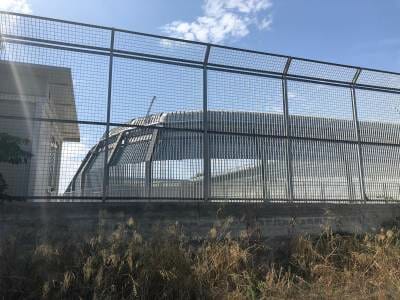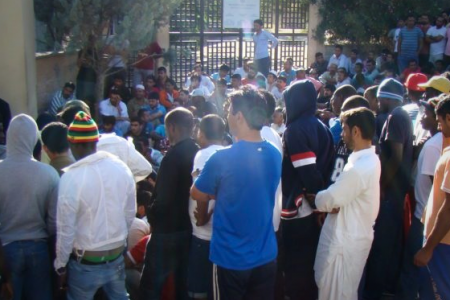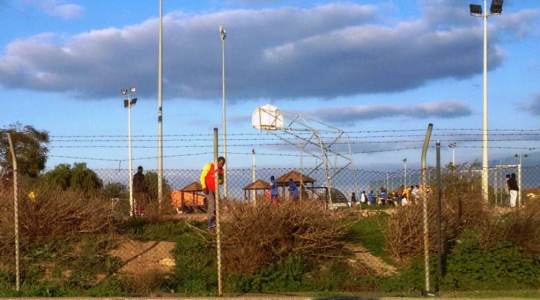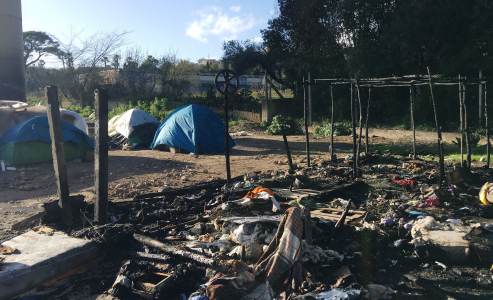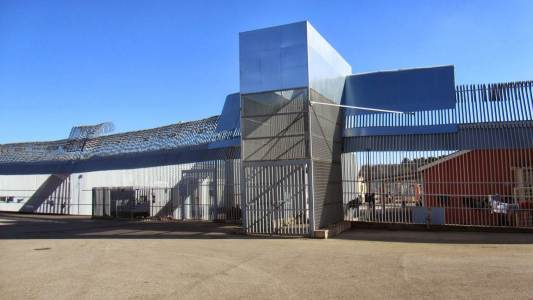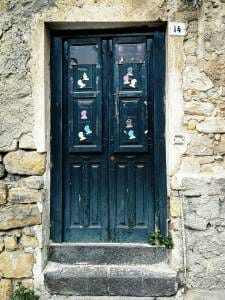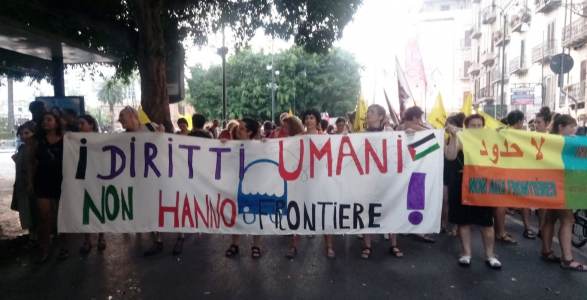Pian del Lago: Maximum security repatriation center
Article first published on October 4, 2021
We have been in Caltanissetta to monitor the situation in the Detention and Repatriation Center (CPR) of Pian del Lago. The visit was conducted a few days before the attempted escape of about 30 people detained inside the CPR, who were trying to escape their deprivation of personal freedom and freedom of movement.
To date, the center is divided into three areas including the immigration office, the reception center for asylum seekers (CARA) along with the first reception center (CPA) which currently operates as a Covid center as well as the CPR, which is located behind the CARA.
The CPR has just reopened and is operating at full capacity after being closed as a consequence of numerous fire incidents, often triggered by tragic events such as the death of a Tunisian man detained in the CPR in January last year. The death was declared ‘natural’ but there is a strong suspicion that it was also caused by the lack of proper medical treatment inside the center.
While the Italian State declares that works of ‘adaptation and improvement’ have been done, our monitoring visit at the end of September reveals that these ‘adaptions’ focus more and more on surveillance and control, above all to limit the right of movement of people detained through new surveillance cameras and the reinforcement of barriers. Therefore, we wonder in what sense is it ‘improvement’ and for whom? As some Tunisian people told us – speaking from behind two huge fences – “we’re in deep shit here”.
Since 2016, all requests made to the prefecture by associations regarding an audit and inspection of the detention center have been rejected.
In the past year and a half, difficulties in accessing and communicating with those detained have continued to intensify, using the Coronavirus as justification. It is therefore an almost established practice on risk of being continued after the pandemic and thus, normalizing illegal approaches. A lack of access inside the center makes the communication with detained people virtually impossible, and it makes the CPR even more ‘invisible’.
Like many centers for migrants, Pian del Lago is located in a ‘peripheral’ area, totally isolated from the rest of the city and in particular, not connected to any public transportation. We met several people who had gone to the Immigration Office in order to do their paperwork and were calling a cab to return to the city center.
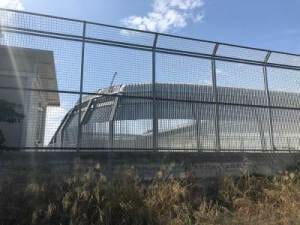
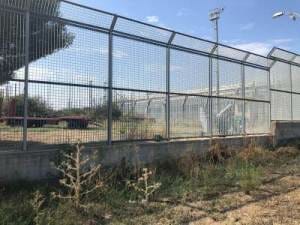
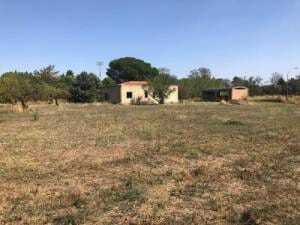
Our external observation indicates that people of Tunisian and Gambian origin are detained at the center in Pian del Lago. One Tunisian man was able to tell us that he has been detained for three months, which is the maximum period of pending deportation. Against the backdrop of information we have received about the situation of Tunisian people in Italy during the last months – namely, that due to immediate repatriation flights, their stay in pending deportation has mostly been limited to a few days – a Tunisian person who has been held for three months is a novelty. No matter whether this is a special case or not, there is an element to it that cannot be underestimated: the Pian del Lago center is able to guarantee out all “containment functions” in a single place.
A logistical turnstile that moves people from one area of the building to another as if they were goods: Identification in the offices of the police headquarters, quarantine in the now converted initial reception center, and then – depending on the status defined during the identification process – to pending deportation or to the reception center for asylum seekers. Against this background, it is possible that people remain inside the complex of Pian del Lago for more than three months and, above all, that – from the arrival in Lampedusa to the repatriation to Tunisia – they do not encounter organizations, lawyers or legal professionals even once. Their right of access to the recognition procedure of international protection can thus not be ensured and monitored.
Our monitoring activity had abruptly been interrupted by soldiers as well as the police, who then called the Digos* for our identification.
Pian del Lago – and the repatriation centers in general – continue to be an obscure and inaccessible place, where communication with detained people is prevented at all costs. The exchange of few words with four detained people has already been enough to reveal their desire for freedom. In the silence imposed by the authorities, these acts remain small signs of resistance.
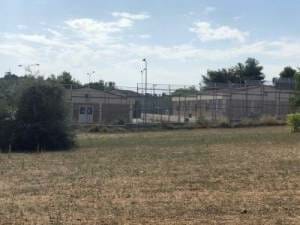
CPR Pian del Lago – CARA
Borderline Sicilia Editorial Office
*CARA: Centro di accoglienza per richiedenti asilo – Reception center for asylum seekers
*CPA: Centro di prima accoglienza – First reception center
*CPR: Centro di permanenza per il rimpatrio – Detention and Repatriation center
*DIGOS: Divisione Investigazioni Generali e Operazioni Speciali – Division for General Investigations and Special Operations; a unit of the Italian State Police specialized in counterterrorism and counter-extremism operations.
Translated by Marah Frech

